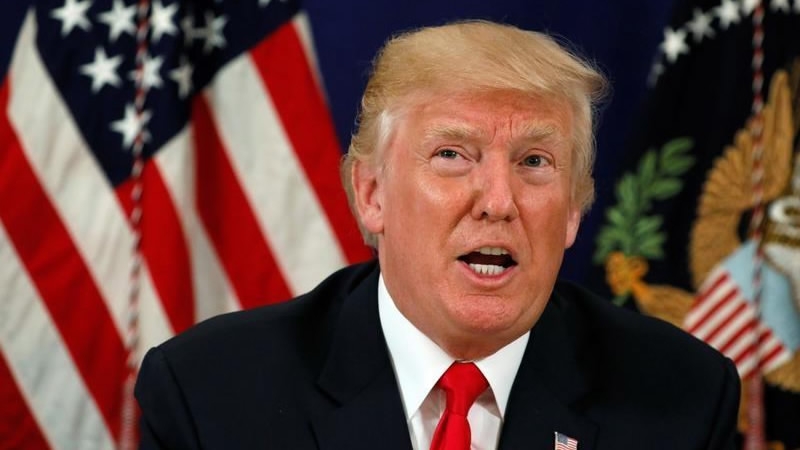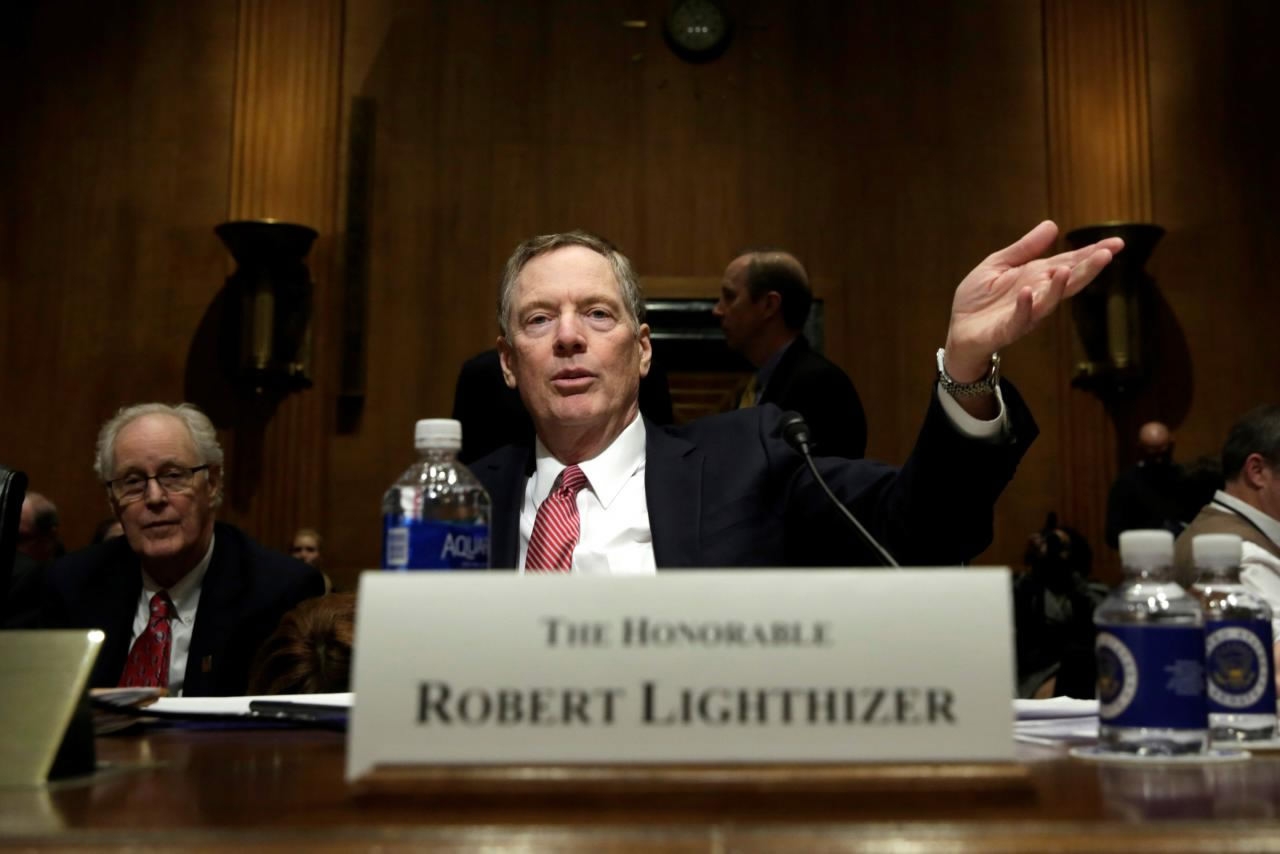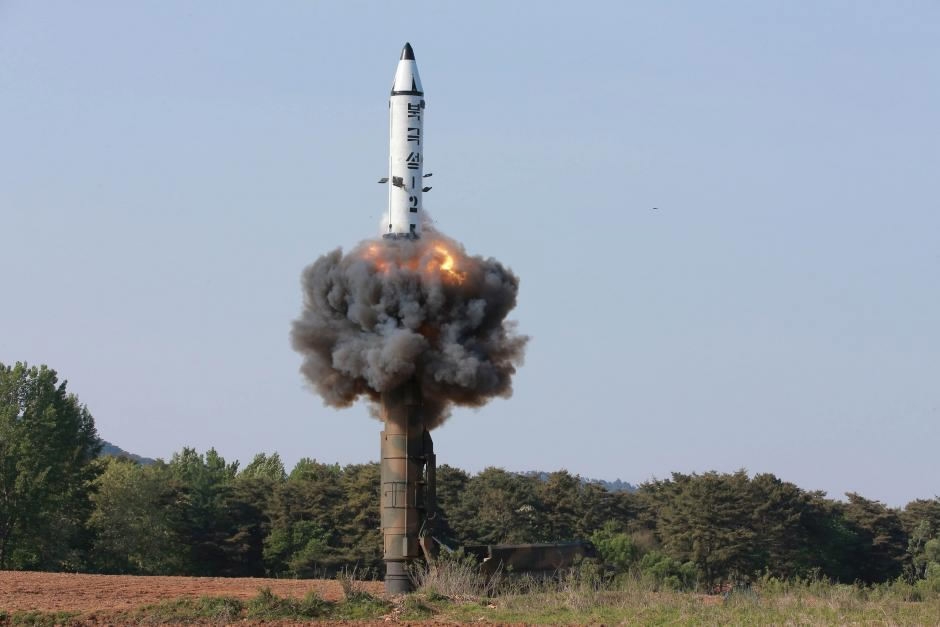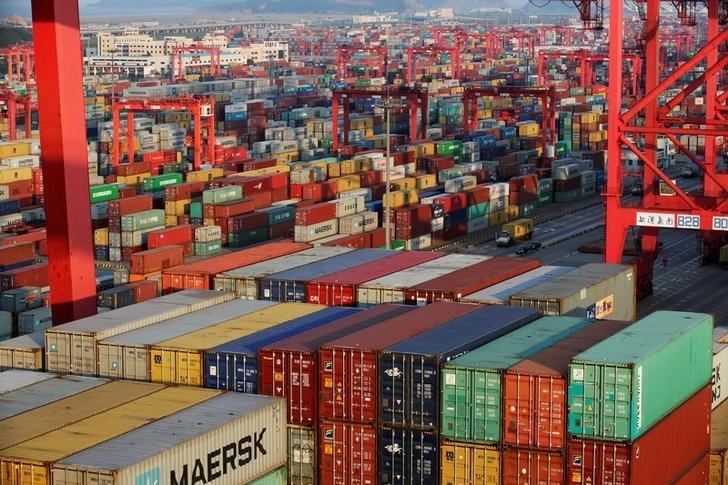
Politics
15:04, 14-Aug-2017
Is US trade probe a pressure tactic for China's action on DPRK?
CGTN

US President Donald Trump will sign an executive memo on Monday ordering US Trade Representative Robert Lighthizer to determine whether to investigate China's trade practices, triggering concerns that Washington may take unilateral moves harming China-US trade and economic ties.
The move comes amid rising tensions over the Korean Peninsula as Washington and Pyongyang has threatened possible military action against each other, and one week after China voted to impose tougher economic sanctions on Pyongyang in the UN Security Council.

US Trade Representative Robert Lighthizer /Reuters Photo
US Trade Representative Robert Lighthizer /Reuters Photo
The possible inquiry will be under Section 301 of the Trade Act of 1974, which allows the US president to unilaterally impose tariffs or other trade restrictions to protect US industries from "unfair trade practices" of foreign countries. The provision has fallen into disuse after the creation of the World Trade Organization.
Why does Trump make the order now?
It has been two weeks since media first reported that Trump has been mulling such an investigation under the 1974 Trade Act's Section 301.
It was expected earlier this month but Trump made the announcement on Saturday, postponing the decision of the probe on Monday, as the White House pressed for China's efforts on Korean Peninsula.

The photo released by KCNA shows the scene of the intermediate-range ballistic missile Pukguksong-2's launch test, May 22, 2017. /Reuters Photo
The photo released by KCNA shows the scene of the intermediate-range ballistic missile Pukguksong-2's launch test, May 22, 2017. /Reuters Photo
Even if a decision is made to start such an investigation, it could take as long as a year to conclude, an administration official said. He said it would be premature to speculate on actions that could eventually be taken against China, and added that the issue could be resolved through "negotiated agreement."
The president has publicly linked the issue of trade fairness with his calls on China to pressure DPRK to drop its weapons program.
"We lose hundreds of billions of dollars a year on trade with China. They know how I feel," he told reporters on Thursday. "If China helps us, I feel a lot different toward trade."
But will trade tariff be a proper tactic?
"This action would represent a sharp escalation of pressure on China on two fronts – the China-US bilateral trade relationship, and China’s role in managing the volatile situation on the Korean peninsula,” said Eswar Prasad, a professor in the Dyson School at Cornell University, and a senior fellow at the Brookings Institution.

Container boxes are seen at the Yangshan Deep Water Port, part of the Shanghai Free Trade Zone, in Shanghai, Sept. 24, 2016. /Reuters Photo
Container boxes are seen at the Yangshan Deep Water Port, part of the Shanghai Free Trade Zone, in Shanghai, Sept. 24, 2016. /Reuters Photo
Michael Froman, former USTR under the Obama administration, warned that the US could face retaliation if the country moves away from resolving trade disputes through the WTO and instead starts taking unilateral actions.
"A decision to trigger Section 301 today is problematic because it would provide additional fuel to the already simmering argument that the Trump administration is undoing the American commitment to rules-based trade and decades of work to establish international cooperation," argued Bown, who worked as a senior economist for international trade and investment in the White House Council of Economic Advisers and the World Bank.
11160km
Source(s): Reuters
,Xinhua News Agency

SITEMAP
Copyright © 2018 CGTN. Beijing ICP prepared NO.16065310-3
Copyright © 2018 CGTN. Beijing ICP prepared NO.16065310-3